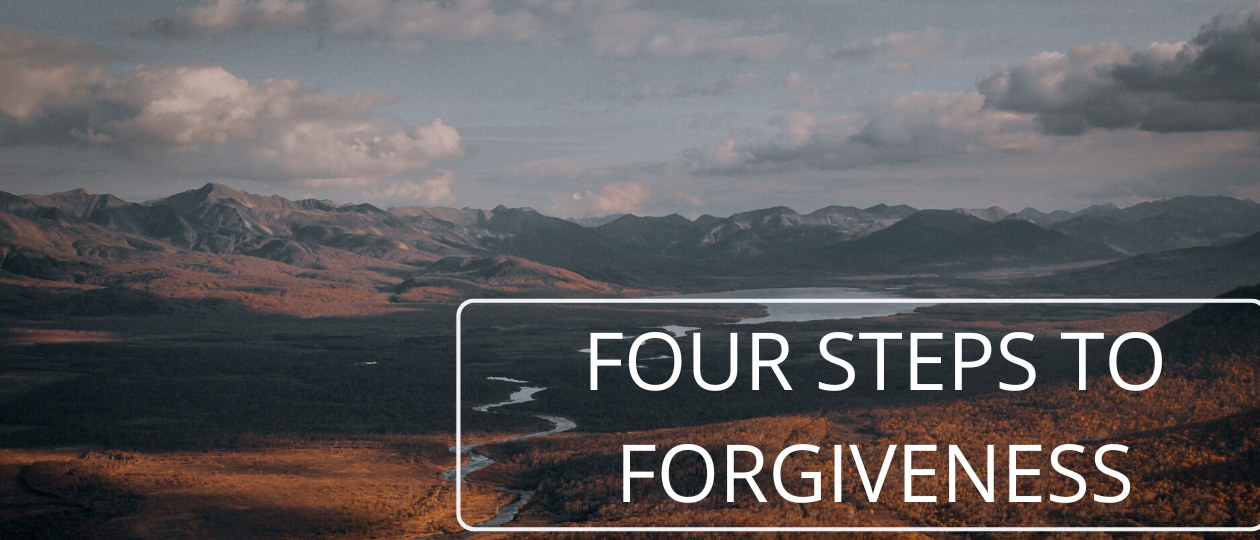Four Steps to Forgiveness
Today, we’re covering a deeply polarizing topic—not only between different kinds of people but between the same people at different times. C.S. Lewis put it very well, “Everyone says forgiveness is a lovely idea until they have something to forgive, as we had during the war. And then, to mention the subject at all is to be greeted with howls of anger. It is not that people think this too high and difficult a virtue: it is that they think it hateful and contemptible.”
I think the reason for this is that it offends our sense of justice. If something terrible has been done to us, then it seems monstrously unfair—not only that the offender should be forgiven, but that the burden of doing so should fall on us.
This is another area that is closely tied to my faith since I believe that final justice is out of all our hands. But I can speak with some authority as a psychologist. I’ll tell you this, first of all: in all my years of practice, I’ve never met anyone who did not have an unforgiveness issue on some level. It’s a slow poison, and the act of forgiveness might actually be more essential for the forgiver than it is for the forgiven.
But I promised you four steps, so let’s get to them…
Step one: touch the pain. This may seem like a strange idea. When something hurts us, our first instinct is always to get away from the pain, and we certainly don’t relish the idea of jumping back into it. So why do I want you to do it? Because it’s very easy to say you forgive someone on an intellectual level—just to get it over with, maybe—without really confronting the feelings underneath. Then a little while down the road, you’ll discover that you still have those feelings of unforgiveness. I think in a lot of cases when someone feels like they can’t forgive someone, this is the reason. Taking some time to heal after being hurt is fine and good, but when you reach the point of forgiving someone, I believe it is important to engage emotionally as well.
Step two: see the perpetrator as a victim themselves. Now we come to the really unpopular part. Needless to say, empathizing with someone who has hurt you is both difficult and unpleasant. But remember that nothing happens in a vacuum. The sort of people who inflict pain on others are almost always reacting to pain in their own lives. Furthermore, if you’ve ever hurt someone yourself, then you know how hard it is to live with that regret. True, some people go against their conscience to such a degree that they become calloused to it, but that only leads to more pain in the long-term. It’s like that old saying, “an eye for an eye makes the whole world blind.” Of course, justice must still have its place, but on a personal level, the ability to forgive and go on loving in spite of pain has the power to cure us all, not just one person.
Step three: realize you are not the source. What I mean by that is that forgiveness or unforgiveness doesn’t really come from us—we are only vessels for them. Consider a baseball bat: you can use it to beat someone to death or to play a game with your children and make wonderful memories. The issue of forgiveness offers us a similar choice. Will we be filled with love even in the face of pain, or with fear and hate?
Step four: realize your own need for forgiveness. By that, I don’t mean your own need to be forgiven for your part in whatever happened—that may be the case or not, depending on the situation. But I said earlier that forgiveness may be more essential for the giver than the recipient, and here is where we come up against that idea. Relationships are the root of meaning in life, and between foolish, messy humans like us, they just don’t work very well without forgiveness.
Have a blessed, wonderful day!
Alex Loyd



